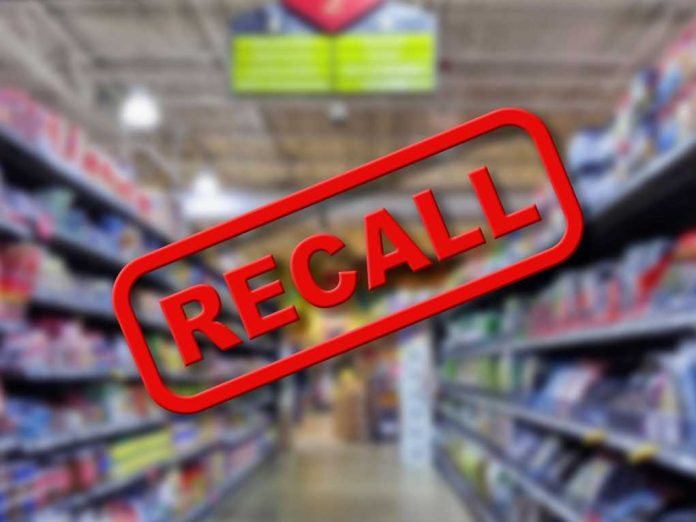
Ritz Peanut Butter Cracker Sandwiches have been recalled nationwide due to a labeling error that could endanger those with peanut allergies, and the story is as crunchy as the crackers themselves.
At a Glance
- Mondelēz Global issued a voluntary recall due to a labeling mix-up.
- The FDA and DeCA are involved in managing the recall process.
- No illnesses have been reported, but the recall is a precautionary measure.
- The incident highlights the importance of allergen management in food labeling.
Behind the Ritz Recall: A Peek into the Crunchy Chaos
Mondelēz Global, the snack giant behind the beloved Ritz brand, announced a nationwide recall of their Peanut Butter Cracker Sandwiches in July 2025. The culprit? A labeling blunder that switched peanut butter for cheese, posing risks to those with peanut allergies. While the outer packaging was correctly labeled, the individual packs were not, leading to this crunchy conundrum. With the FDA and DeCA stepping in, the recall was swiftly publicized. Thankfully, no allergic reactions have been reported so far.
Nationwide Ritz Cracker Recall Update as FDA Issues Risk Warning https://t.co/ioRX3EEW1O
— #TuckFrump (@realTuckFrumper) July 24, 2025
The story may sound like a snack-time drama, but it underscores the critical need for accurate allergen labeling. Food recalls due to such errors are not unheard of, and Mondelēz has faced similar hiccups in the past. This incident reminds us of the delicate dance between large-scale production and consumer safety, especially for those with life-threatening allergies.
Stakeholders in the Spotlight
The main players in this recall saga include Mondelēz Global, the FDA, and the Defense Commissary Agency (DeCA). Mondelēz, driven by consumer safety and brand reputation, took the lead in initiating the recall. The FDA and DeCA ensured the recall was publicized and managed effectively. Consumers, particularly those with peanut allergies, are at the center of this safety effort. The recall showcases the responsibility Mondelēz holds in ensuring product safety, while the FDA and DeCA maintain oversight and enforcement roles.
Aside from those directly involved, the recall resonates with consumers across the nation. It’s a stark reminder of the importance of reading labels and being vigilant about potential allergens. Retailers and commissaries are also affected, tasked with removing the affected products and communicating with customers. The power dynamics at play highlight the collaborative effort required to manage such recalls efficiently.
Current Crunchy Developments
As the recall unfolds, Mondelēz emphasized that the move was strictly precautionary. The FDA and DeCA have been instrumental in ensuring the swift removal of affected products from shelves nationwide. This proactive approach, although costly, is a testament to the importance of consumer safety. The recall, announced on July 8, 2025, has been progressing without any reported incidents of allergic reactions.
The timeline of events from the recall announcement to media advisories paints a picture of organized chaos behind the scenes. While the recall continues, Mondelēz reassures consumers that only specific carton sizes and best-by dates are affected. Other Ritz or Mondelēz products remain safe for consumption. The precision in managing this recall sets a precedent for future incidents, emphasizing transparency and consumer trust.
Impact and Implications: Beyond the Snack Aisle
The immediate impact of the recall is the removal of affected products, a move that may temporarily dent Mondelēz’s sales. For consumers with peanut allergies, it’s a wake-up call to remain vigilant and informed. In the long run, Mondelēz might tighten their quality control processes, a move crucial for maintaining consumer trust. The incident also raises broader questions about allergen management in the food industry.
Economically, the cost of product retrieval and potential liabilities looms over Mondelēz. Socially, the recall sparks discussions on food safety practices. Politically, it reinforces the role of the FDA in safeguarding public health. The ripple effects extend industry-wide, potentially prompting other manufacturers to reevaluate their packaging and labeling protocols. While the recall is a hiccup, it’s also an opportunity for learning and improvement in food safety practices.









